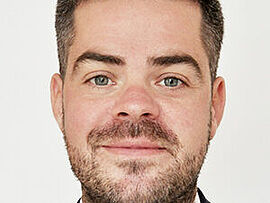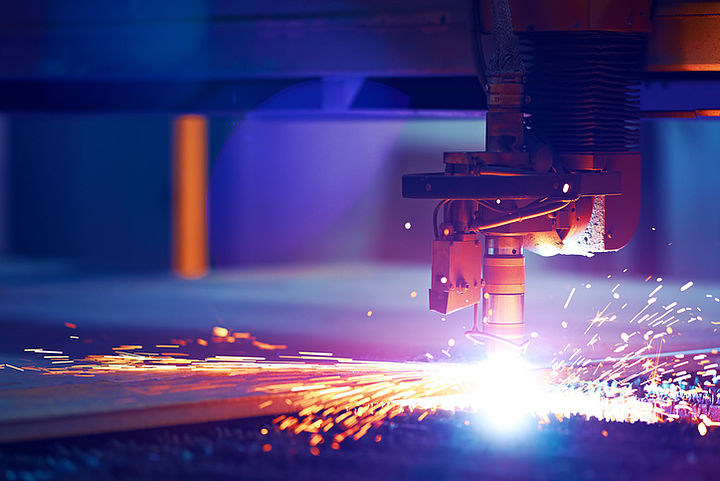Since September 1, 2020 Tobias Glück has been head of the Competence Unit Complex Dynamical Systems (CDS) at the Center for Vision, Automation & Control. With his appointment, the AIT Austrian Institute of Technology is expanding its competencies in the field of automation & digitalisation of mechatronic components and industrial processes. We spoke with him.
Congratulations to the head of the Competence Unit! What does this mean to you?
I have always been into applied research because it allows to transfer theoretical knowledge into industrial applications. To me it is very motivating to develop customized solutions and to support our industrial partners in their concrete and often very complex issues. Four years ago - after the founding of the Competence Unit Complex Dynamical Systems - I played a major role in shaping it. I am pleased that my work to this day has been appreciated in that manner. Now, I am looking forward to continuing the path I have already taken together with my team.
Can you please explain in more detail what is meant by Complex Dynamic Systems?
Our research focuses on the automation and digitalisation of mechatronic components, industrial manufacturing processes and high quality products. We deal with the design of such complex technical systems, automated decision making and real-time implementation of intelligent algorithms. To do this, we record and analyse data and create mathematical models. Using these mathematical models, we develop algorithms for the optimisation and control of - for example - production processes. We thus combine advanced methods with real-world problems and build bridges between theory and industrial practice.
Why is automation and digitalisation in industrial production processes so important today?
Due to the drastic shortening of product life cycles and the ever-increasing variety of products, production plants have long since ceased to be operated in stationary mode. At the same time, the demands on product quality are increasing while society is demanding more sustainability. These demands can only be met by optimised, dynamic operation that adapts to changing environmental conditions and process variations.
How can the competitiveness of domestic manufacturing industry be ensured?
Well, intelligent automation solutions as well as learning mechatronic subsystems and components are essential to ensure the international competitiveness of the domestic manufacturing industry. They enable the production or work environment to be systematically recorded and analysed. Based on this, automated decisions can be taken in real time and actions can be realised by means of actuators. This makes it possible to optimize the production, utilization and quality of the systems, minimize the use of resources and ensure the international competitiveness of the domestic manufacturing industry.
What are your plans for the future?
As for the future, we will deepen and expand our strategic partnerships with key industry players. And we will pay particular attention to the manufacturing industry in Austria. It is one of the major industries in the country and faces major challenges - especially with regard to sustainable production and globalisation.
Tobias Glück, thank you very much for the interview and all the best for your new field of work.
About Tobias Glück
Tobias Glück completed his degree in Technical Cybernetics at the University of Stuttgart in 2007 and received his PHD from the Vienna University of Technology in the year 2013. He has many years of experience in application-oriented research. His work focuses on 'thinking in systems' and the holistic view of components, processes and products. To this end, he and his group research, develop and implement methods, algorithms and technologies for the optimisation and control of complex dynamical systems. He replaces Andreas Kugi, who together with Andreas Vrabl, is going to turn all of his attention to his role as Head of the Center for Vision, Automation & Control.
Contact
tobias.glueck@ait.ac.at





